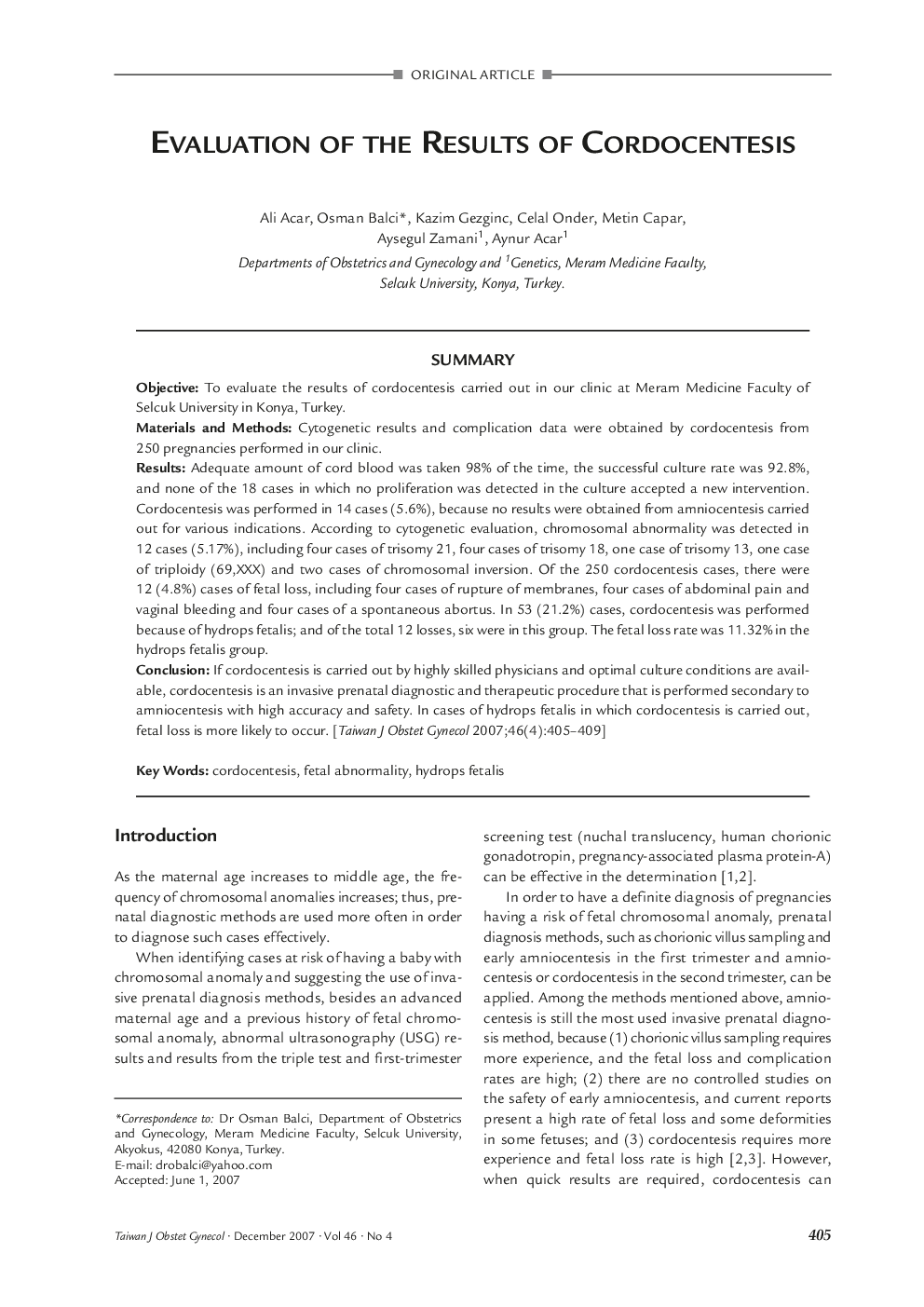| Article ID | Journal | Published Year | Pages | File Type |
|---|---|---|---|---|
| 3976071 | Taiwanese Journal of Obstetrics and Gynecology | 2007 | 5 Pages |
SUMMARYObjectiveTo evaluate the results of cordocentesis carried out in our clinic at Meram Medicine Faculty of Selcuk University in Konya, Turkey.Materials and MethodsCytogenetic results and complication data were obtained by cordocentesis from 250 pregnancies performed in our clinic.ResultsAdequate amount of cord blood was taken 98% of the time, the successful culture rate was 92.8%, and none of the 18 cases in which no proliferation was detected in the culture accepted a new intervention. Cordocentesis was performed in 14 cases (5.6%), because no results were obtained from amniocentesis carried out for various indications. According to cytogenetic evaluation, chromosomal abnormality was detected in 12 cases (5.17%), including four cases of trisomy 21, four cases of trisomy 18, one case of trisomy 13, one case of triploidy (69,XXX) and two cases of chromosomal inversion. Of the 250 cordocentesis cases, there were 12 (4.8%) cases of fetal loss, including four cases of rupture of membranes, four cases of abdominal pain and vaginal bleeding and four cases of a spontaneous abortus. In 53 (21.2%) cases, cordocentesis was performed because of hydrops fetalis; and of the total 12 losses, six were in this group. The fetal loss rate was 11.32% in the hydrops fetalis group.ConclusionIf cordocentesis is carried out by highly skilled physicians and optimal culture conditions are available, cordocentesis is an invasive prenatal diagnostic and therapeutic procedure that is performed secondary to amniocentesis with high accuracy and safety. In cases of hydrops fetalis in which cordocentesis is carried out, fetal loss is more likely to occur.
